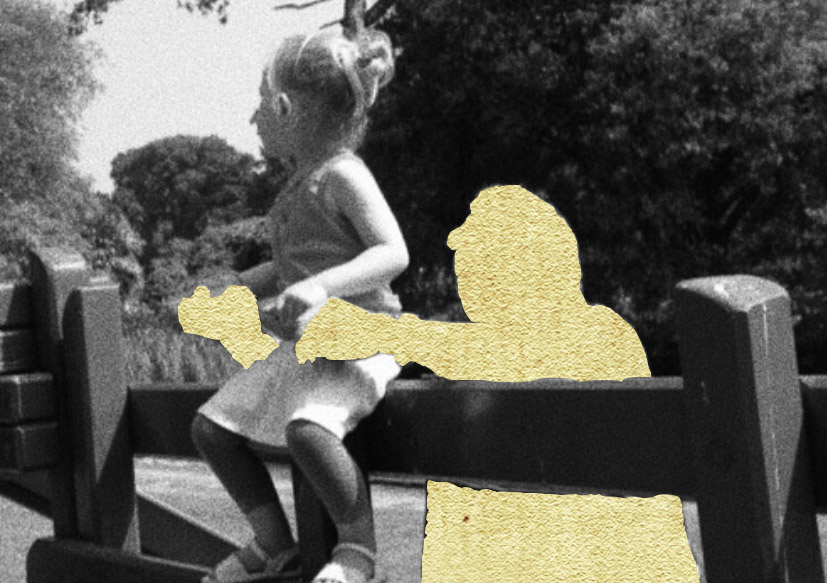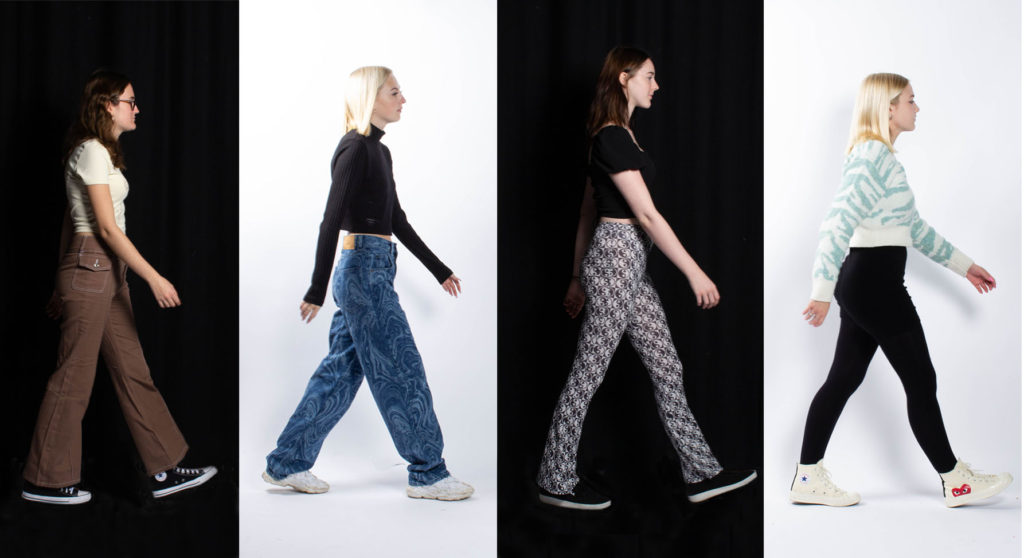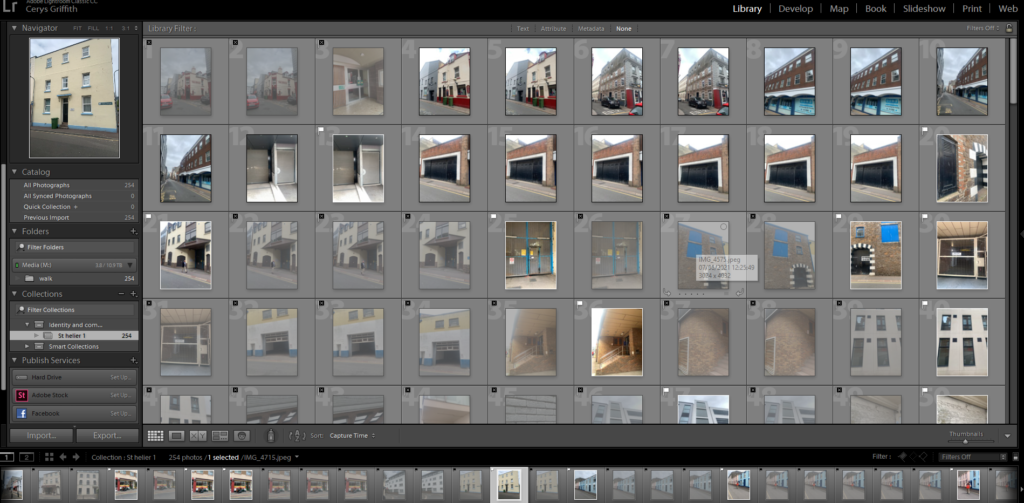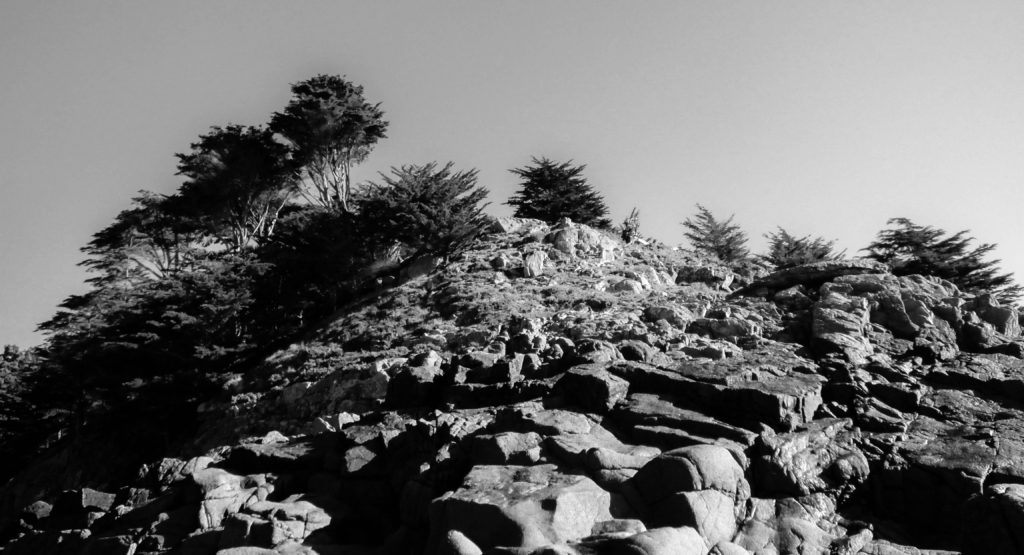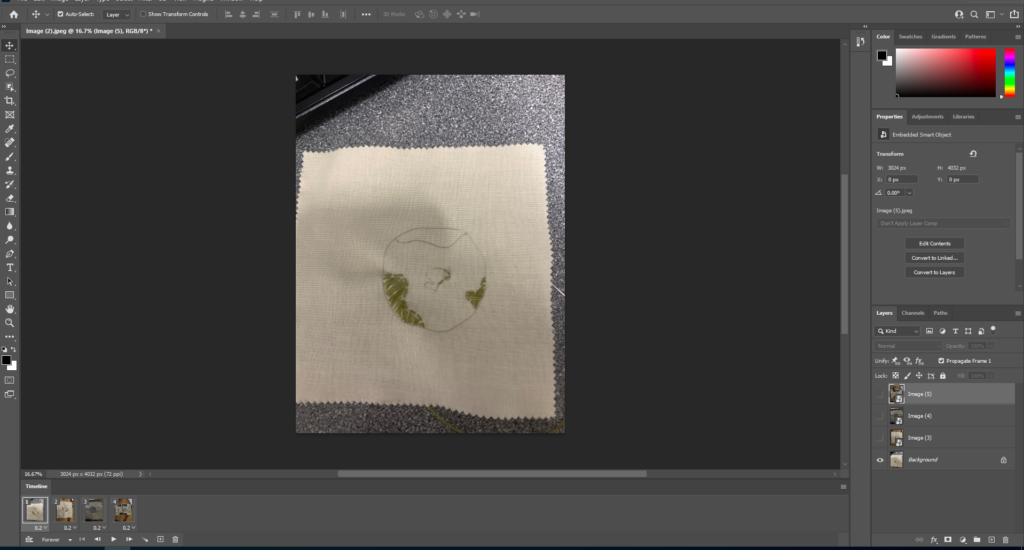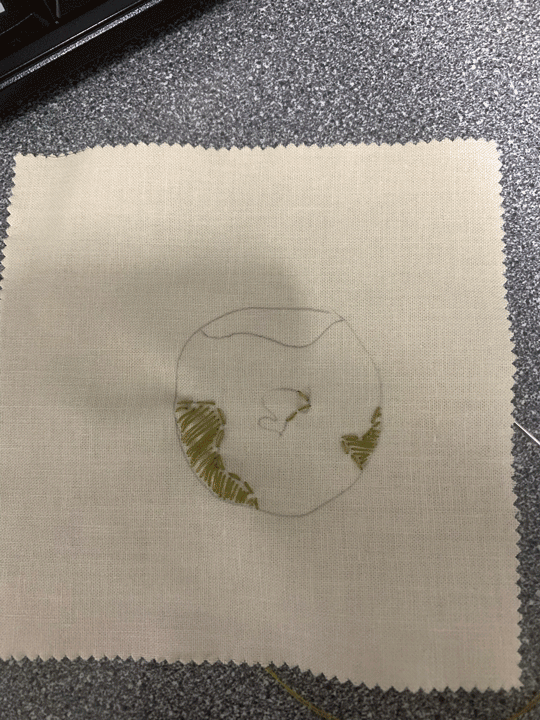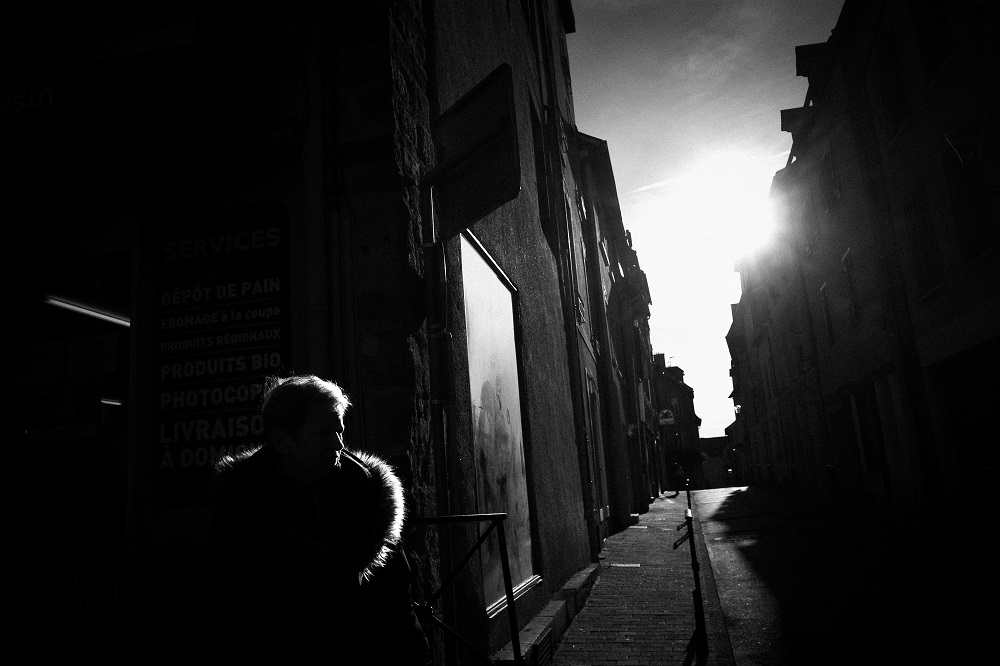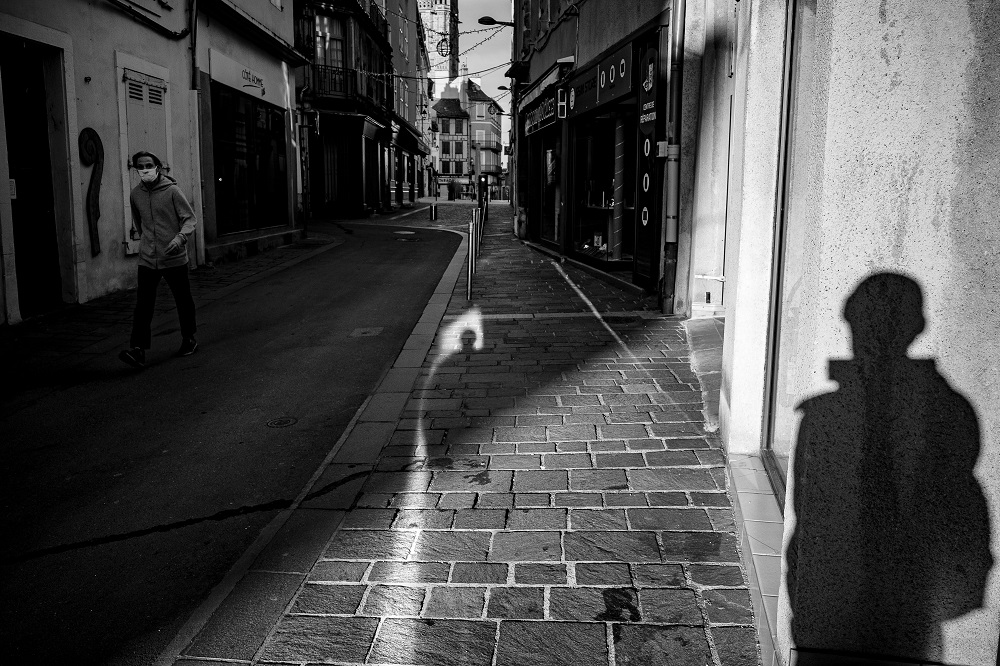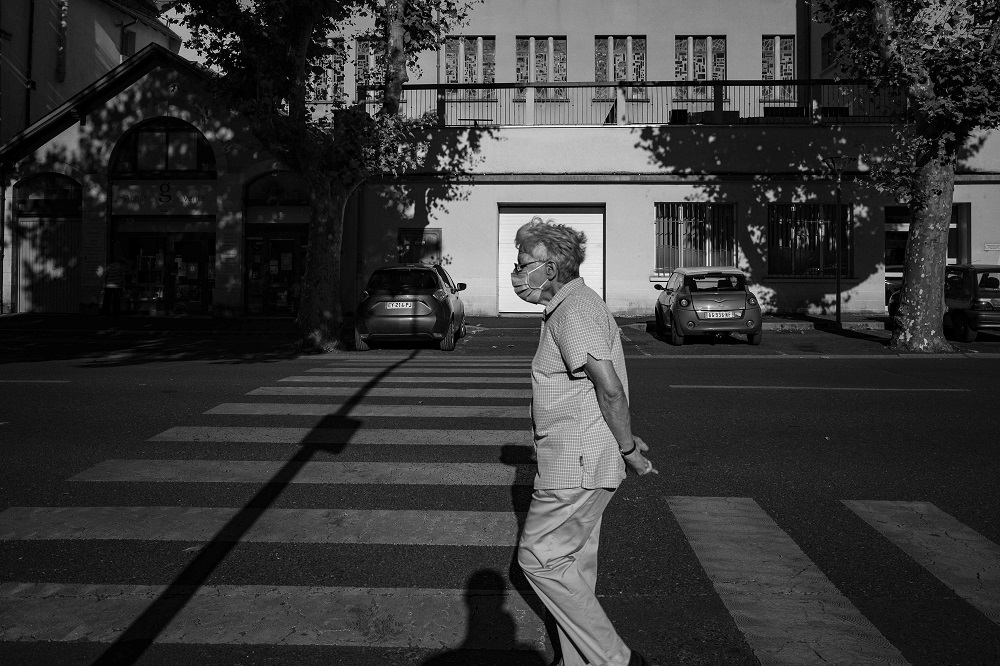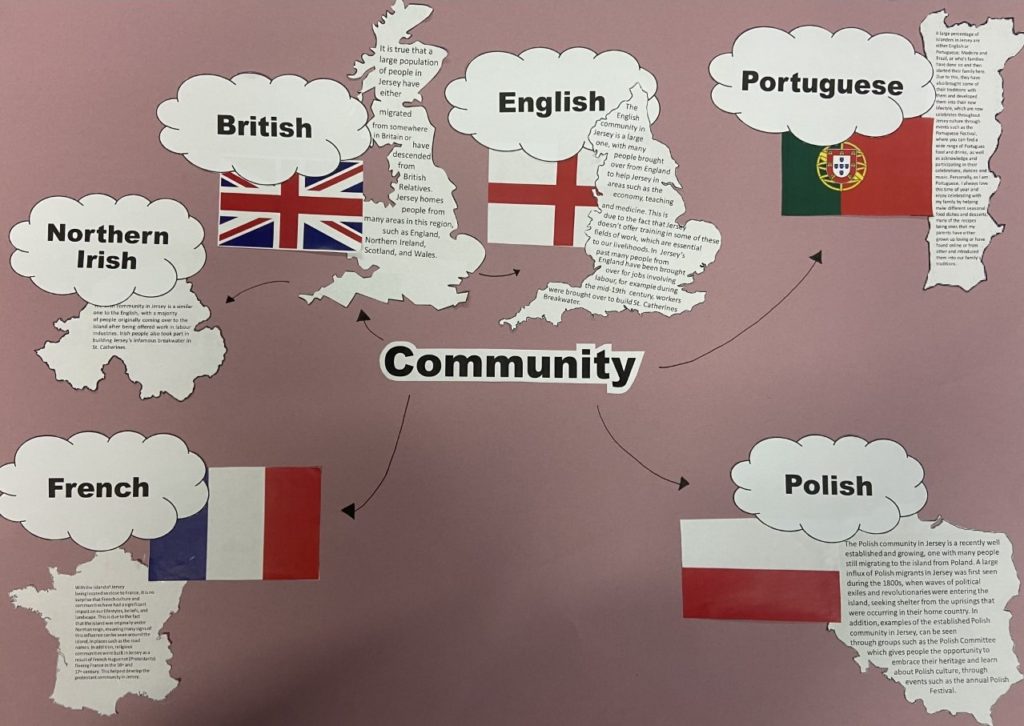
Here me and Toni researched the topic of community in our island’s identity, focusing on migrant and ethnic groups. With this we looked into the British, Portuguese, French and Polish communities that can be in Jersey and wrote about their origins and their influence on the island. We believed these many different cultures make Jersey special as they increase diversity and bring in new traditions. I think that this multiculturalism that we posses helps to define today’s Jersey as it is seen as a place of hope, new opportunities and welcoming people. I believe that this will only become more evident in the future, as people become more open minded and accepting of cultures that are not Anglo-centric. To solidify this multicultural identity in Jersey we should aim to provide more hostings of events and fairs that showcase these many cultures and educate people on their traditions and customs, such as the Polish fair that already occurs in Jersey. However, there are some barriers towards maintaining this positive island identity including the sky rocketing price of living on the island, which may potentially deter people of different ethnic and cultural backgrounds from moving to Jersey as well as staying here. This could possibly mean a drastic loss of diversity on the island.
This topic could be explored through photography or film by spending time with people from various cultures such as these, and telling their stories of migration as well as their first experiences and impressions of the island. You could also focus on more specific areas of these diverse communities, such as the food or music that acts as a unifier and brings people together. Inspiration for this could also be gained from participating in events and fairs celebrating the communities you wish to gain a wider knowledge of.
Overall I believe that Toni and I created a poster that successfully demonstrated the importance and the origins of communities on the island. Something that I think we could improve on if we were to do this task again, is to research in more detail the events and groups that already exists to help maintain these different cultures.













